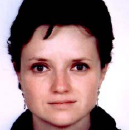
SLANINOVA Katerina
Work place: Silesian University in Opava, School of Business Administration in Karvina, Department of Informatics Univerzitní nám. 1934/3, 733 40 Karviná, Czech Republic
E-mail: slaninova@opf.slu.cz
Website:
Research Interests: Network Architecture, Data Mining, Data Structures and Algorithms, Analysis of Algorithms
Biography
Kateřina Slaninová is an associate professor at the Silesian University in Opava, School of Business Administration in Karvina, Department of Informatics, Czech Republic, European Union. She participates on the learning process at Silesian University since 2002. Her main scope of interest includes web design, IS Development and ERP systems. She participates in research of computational intelligence methods used for data analysis and visualization specialized to social network analysis and process mining area. She is the author of more than 20 publications in Czech Republic and abroad including book chapters.
Author Articles
The Usability of Agent-Based Simulation in Decision Support System of E-Commerce Architecture
By SPERKA Roman SLANINOVA Katerina
DOI: https://doi.org/10.5815/ijieeb.2012.01.02, Pub. Date: 8 Feb. 2012
Electronic commerce (e-commerce) has the potential to improve the competitiveness of the enterprises. A decision support system, used in e-commerce, is a term used to describe any software engine that enhances the user’s ability to make decisions. The paper presents a new approach for decision support system modeling. This approach is applied by a modification and extension of existing decision support system architecture by multi-agent technology and agent-based simulation models. Multi-agent technology is one of the fastest growing fields of information and communication technology – new agent-based services, products, and applications are being developed almost every day. Agent-based simulation model is applied to coordinate, control, and simulate the architecture of decision support system, used in e-commerce. The proposed architecture improves the existing decision support systems and gains competitive advantage.
[...] Read more.Other Articles
Subscribe to receive issue release notifications and newsletters from MECS Press journals